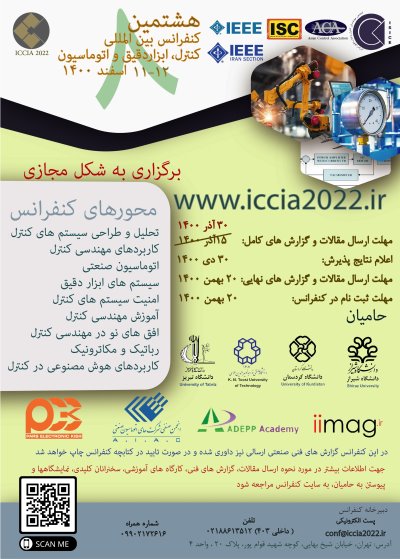0% Complete

نویسندگان :
کلمات کلیدی :
چکیده :
لیست مقالات بایگانی شده
Naeim Yousefi Lademakhi - Paria Moradi - Moharram Habibnejad Korayem
Negin Sarshar - Ali Derakhshani
Zeinab Echreshavi - Mokhtar Shasadeghi - Mohammad Hassan Asemani
محمدرضا هاشمی - محمدهادی کلائی - علی رجبی
شبنم فرشید - الهام امینیبروجنی
Mohammad Mahdi Moslemi - Majid Sadedel
محمد امین قماشی - رضا کاظمی
Abolfazl Saadati Moghadam - Mohammad Haeri
حسین مصفا - حمید خالوزاده
Ali asghar Rajabi - Iman Izadi - Majid Nabi


